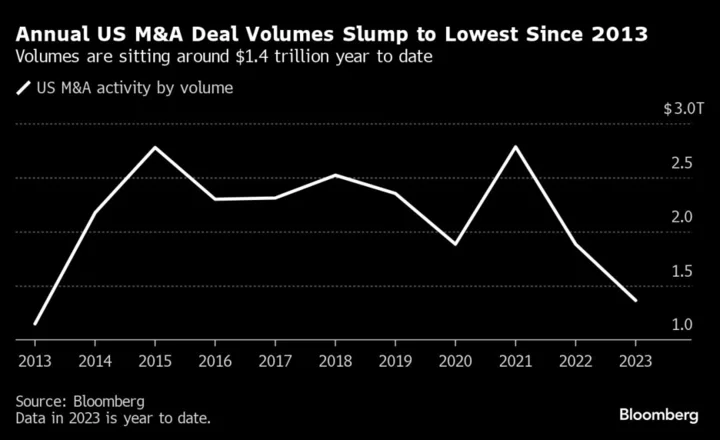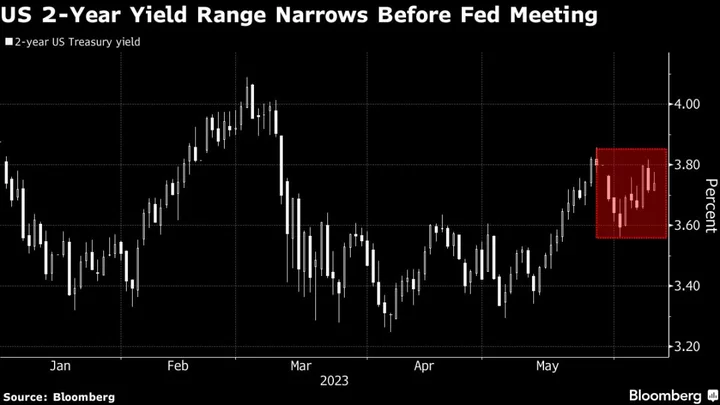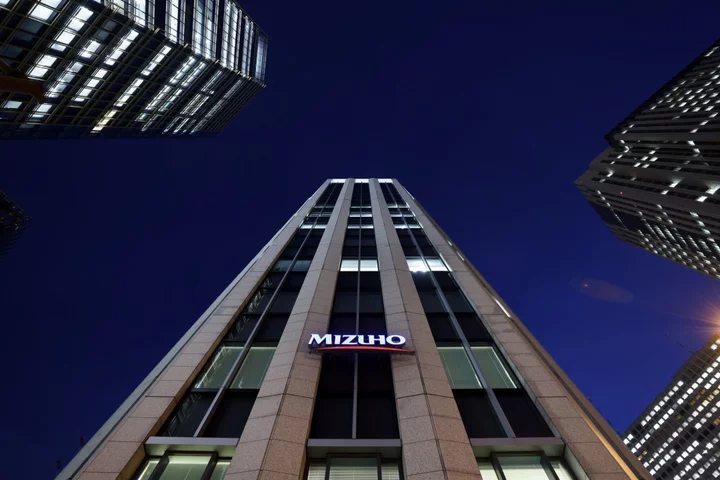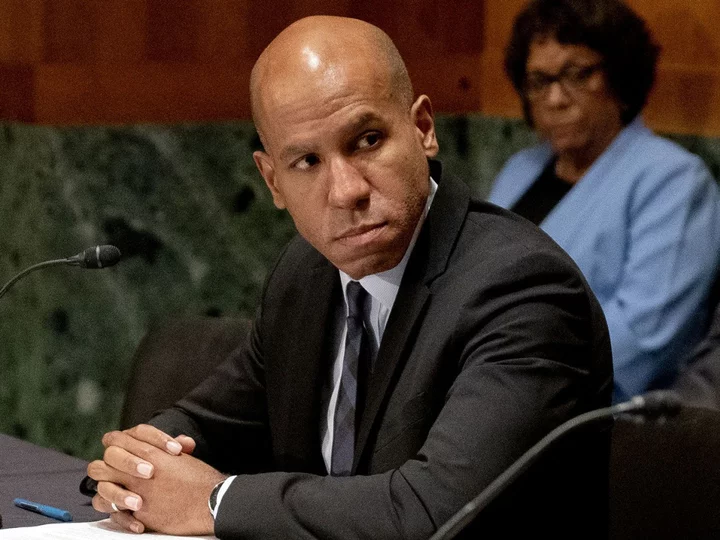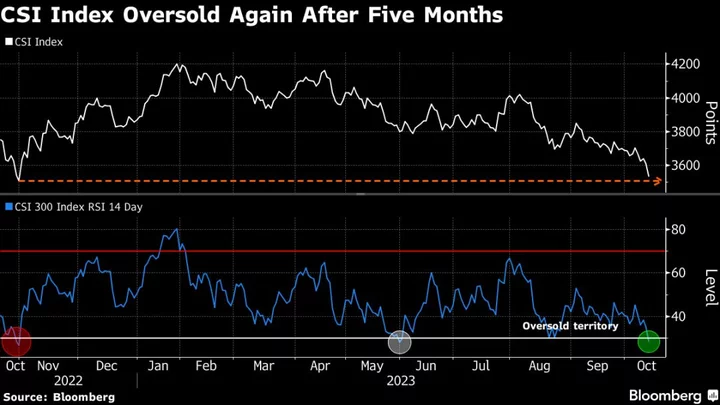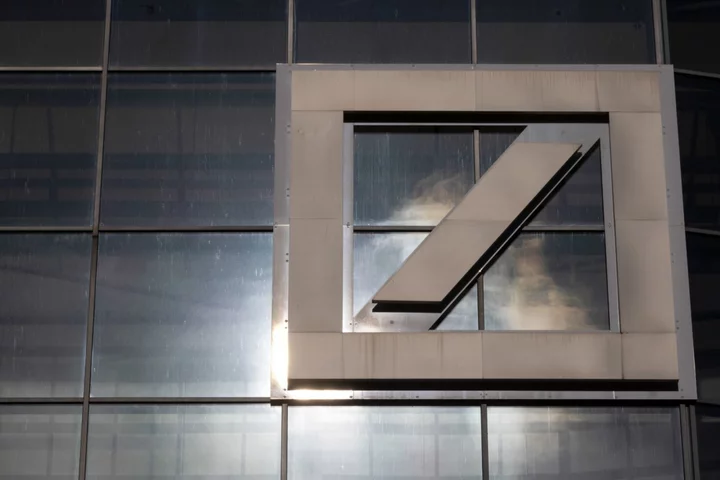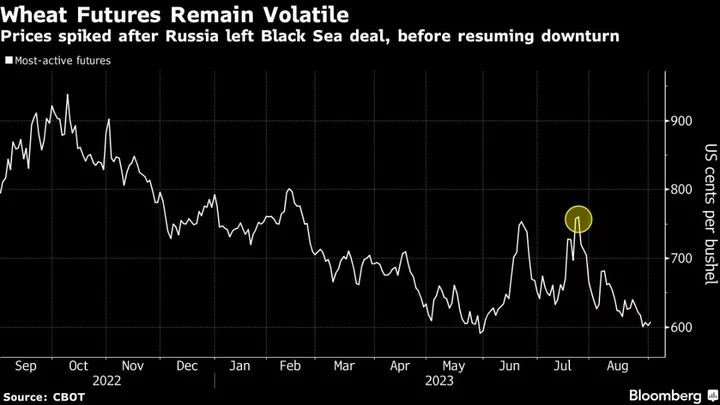Private equity managers had to confront a frightening thought as they gathered in Zurich this week with many of their insurance, pension and sovereign wealth investors: the prospect that this year’s slump in dealmaking will continue well into 2024.
In hallways and during panel discussions at this year’s SuperInvestor conference, many of the professionals in the $20 trillion alternative assets industry, which includes both private equity and private credit, expressed concern that mergers and acquisitions will remain subdued for months to come. That’s as funds grapple with a challenging macroeconomic environment, following a boom decade for private markets.
While inflation has slowed, elevated raw material and labor costs have continued to weigh on the industry, as have prospects that central banks may still need to leave interest rates higher than anticipated for longer.
“People are saying that they expect there to be more M&A in 2024, but I think that’s more hope than anything we know for sure at this time,” Richard T. Miller, group managing director and chief investment officer at TCW Group, said on the sidelines of the conference.
Private equity has experienced some of its slowest deal activity this year, as has the private credit market, squeezing the money funds can pay back to their investors. Buyers and sellers have been struggling to agree on valuations in the same way they used to, while private credit firms are facing increasing competition from traditional banks fighting for a slice of the market.
Globally, buyout funds generated $202 billion in deal value during the first half of 2023, a 58% drop from the previous year in the same period, according to Bain & Company’s Private Equity Midyear Report 2023.
A weak M&A environment means less chance for private equity firms to sell assets and deploy money for new deals. That means private equity funds can’t gather cash to distribute back to their investors and don’t raise fresh commitments from their limited partners.
For private credit funds, a significant chunk of opportunities to deploy money comes from providing leverage to private equity funds buying new businesses. The industry also got used to rapid refinancings, which gave debt funds the opportunity to return capital faster or recycle it into other investments. Now, the risk of defaults in portfolios is rising, which is adding another headache for credit funds as they take over ownership of companies in case of default.
Many managers and investors searching for ways to generate cash have turned to secondary transactions. More than 15 transactions worth over $1 billion were brought to market by limited partners, or LPs, in the first half of 2023, according to PJT Park Hill’s H1 2023 Secondary Market Insight report.
So-called NAV financing solutions can also provide breathing room for private equity funds, which issue debt against the net asset value of their portfolios and can use that leverage to invest or return capital to their investors. Activity in that area has ramped up with more capital being raised and more deals being done.
Deal Flow
“We are seeing increased deal flow both on our secondaries and NAV financing businesses,” Henry Zhang, founding partner of Morningside Capital, said. “With a slowdown in M&A activities, these fund-level solutions have helped provide liquidity to limited partners and follow-on capital for funds.”
Private equity funds don’t have the regular inflows of interest payments that debt funds do. In addition, debt funds have an end date to their investment in the maturity of the loans. Without a strong market to sell their businesses, private equity can struggle to find an exit.
One way to generate cash for private equity funds is through continuation funds, whereby PE funds sell assets to themselves and get new investors into a deal. There are also some signs of private equity revival for take-private deals, and even some larger transactions have happened recently.
Thoma Bravo bought Germany’s EQS Group AG for about 400 million euros ($434 million) while Switzerland’s Partners Group Holding AG acquired pipeline inspector Rosen Group. Owners of Rosen were seeking as much as $4 billion for the asset, according to people familiar with the matter.
Private Credit
To be sure, private equity funds are impacted more than credit funds on balance, Zhang says.
“There’s a lot of activity for private credit managers right now that is not necessarily driven by sponsored-M&A volumes,” said Andreas Klein, head of private debt at Pictet Asset Management.
“We have been looking at buy-and-build capital, refinancings, balance sheet reorganizations, succession transitions, and many other types of transactions,” he said. “There’s plenty to keep us very busy.”
--With assistance from Jan-Henrik Förster.

